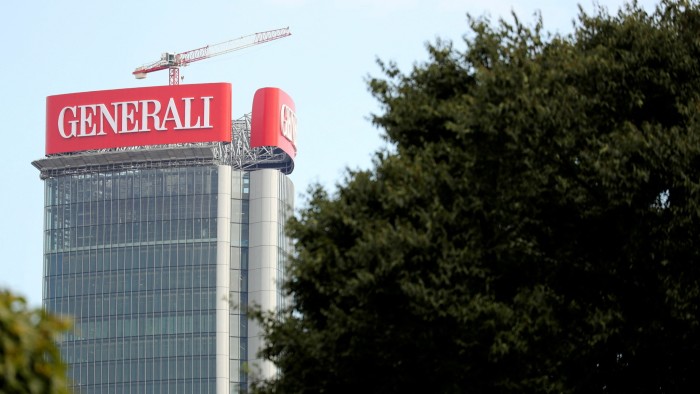Unlock the Editor’s Digest for free
Roula Khalaf, Editor of the FT, selects her favourite stories in this weekly newsletter.
Generali shareholders overwhelmingly backed chief executive Philippe Donnet for another three-year term, a significant victory for the insurer’s largest shareholder Mediobanca with wider implications for Italian politics and finance.
Mediobanca’s slate of board candidates secured 52 per cent of the vote, giving them all 10 of the seats they put forward. The minority list proposed by construction tycoon Francesco Gaetano Caltagirone only secured 37 per cent, which translated to just three seats.
The defeat for Caltagirone, the third-largest investor in Generali, and an ally of Italian Prime Minister Giorgia Meloni, is the second time that the billionaire’s ambition to overhaul the management of Italy’s biggest insurer has been thwarted.
Donnet also successfully defended his seat against a challenge from Caltagirone in a 2022 management fight, in which Caltagirone was backed by Generali’s now second-largest shareholder Delfin, the holding company of late Italian billionaire Leonardo Del Vecchio.
Caltagirone and Delfin are together part of a web of crossholdings in Italian finance, where developments at one company can have implications for control of another.
The billionaires are currently supporting a hostile attempt by Monte dei Paschi di Siena to take over Mediobanca. The show of support for Mediobanca at the Generali meeting strengthens the Milanese bank’s hand in its efforts to fight off the hostile bid.
The vote was further complicated by the presence on Generali’s shareholder register of UniCredit, which is currently attempting to complete its own domestic takeover of Banco BPM.
UniCredit, which had rapidly built a 6.7 per cent stake in Generali ahead of the meeting — of which only 5 per cent had been disclosed before Thursday — sided with Caltagirone.
By supporting Caltagirone, UniCredit indicated that it was seeking to appease Italy’s government amid tensions over its attempted takeover of BPM.
Last week, the Italian government imposed stringent requirements on the BPM deal, including a specific loan to deposit ratio for the next five years and a full Russia exit within nine months, which threatens to derail the transaction.
UniCredit said this week its bid was in limbo as it seeks to clarify the details of the prescriptions with Rome.
The Italian government retains a stake in MPS, which it bailed out in 2017, and has been keen to use the lender as a vehicle to create a strong third competitor to rival Intesa Sanpaolo and UniCredit domestically.
Last week MPS shareholders, which also include Caltagirone and Delfin, overwhelmingly backed chief executive Luigi Lovaglio’s proposed acquisition of Mediobanca.
If the bid were to succeed, MPS would end up controlling Mediobanca’s 13 per cent stake in Generali.
Although Lovaglio told a London conference in March the stake was not “crucial” to his plan to create a third large domestic banking group, analysts have said the deal has little industrial rationale.
Critics have suggested it is ultimately aimed at helping Caltagirone seize control of the insurance group after failed bids to unseat Donnet.




